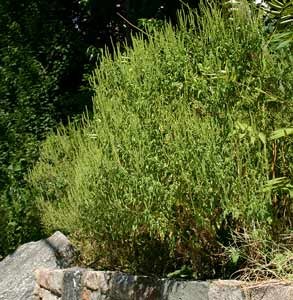
That sneezing and wheezing you are hearing all over Europe is because ragweed is taking hold there. It will only get worse. Climate change will help the allergic-reaction-producing weed spread and grow in more areas on the continent by 2050, according to a study.
About one third of the expected spread of ragweed will be due to changes in land use in Europe and to the way that an invasive non-native plant like ragweed spreads. But climate change will help increase the range of the pesty plant through northern Europe. Ragweed grows better with warmer temperatures and higher levels of carbon dioxide will also help the spread, which is bad news for allergy sufferers.
The study predicts that pollen counts in Europe will increase from 100% to 1,100%, with an average increase of about 300%. Pollen from ragweed plants is a potent allergen, causing all the symptoms of allergic rhinitis: itchy eyes, watering eyes, sneezing, sniffles, and wheezes. Ragweed is any of several flowering members of the genus Ambrosia. One single ragweed plant can produce a billion grains of pollen, which floats on the wind and can stay airborne for days.
Ragweed is not native to Europe. It was imported from North America in the 1800s. As yet, ragweed is not found in parts of France, the United Kingdom, and Germany. By 2050, the plant is expected to reach the areas where it is not found now.
The pollen season for ragweed in North America has already been lengthened by as much as 3 weeks because of climate change. Half of all cases of allergic rhinitis in North America are due to ragweed.
The study used computer simulations to map out the spread of ragweed in Europe. The simulations were based on different scenarios of carbon dioxide pollution. The study was published in the journal Nature Climate Change.

